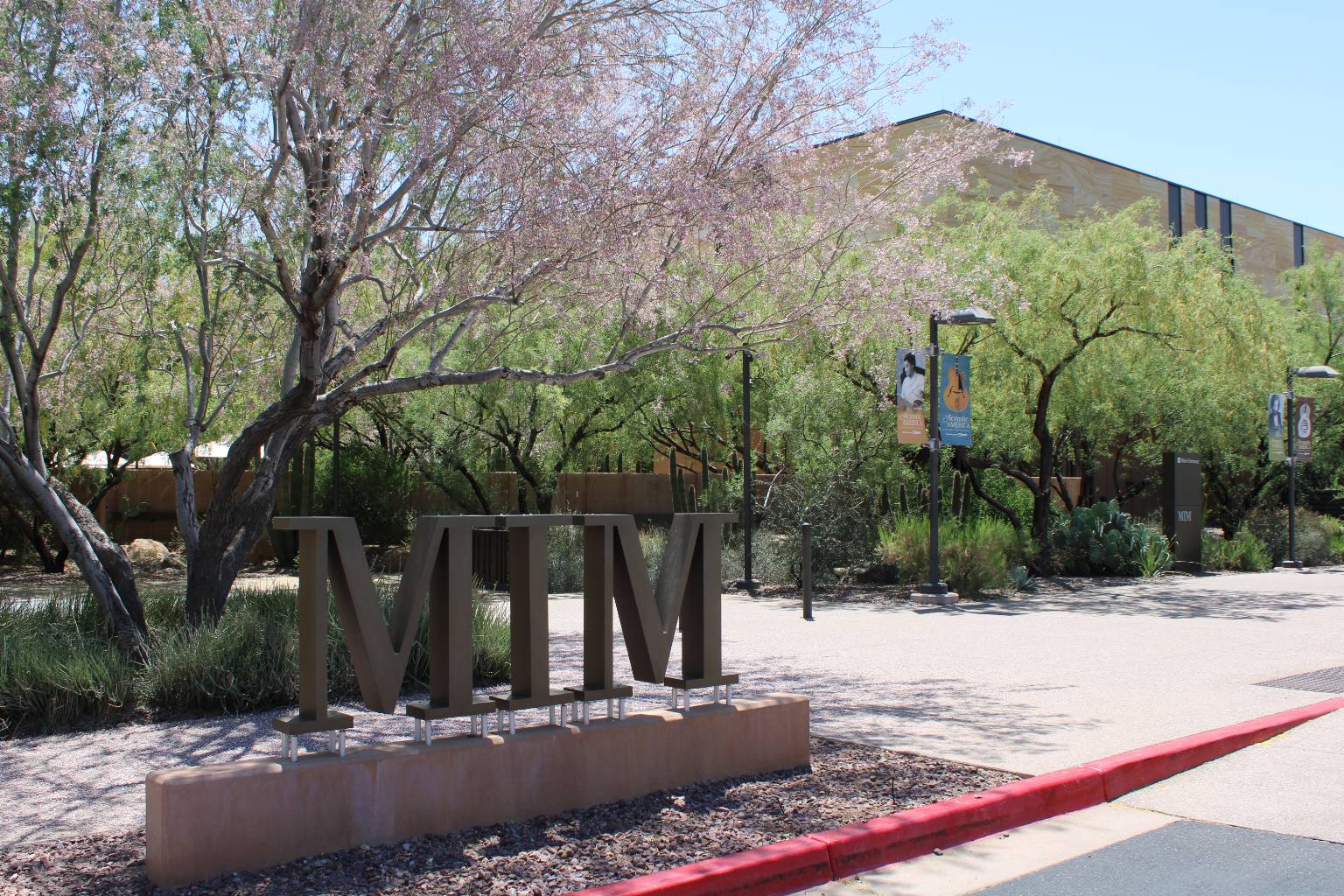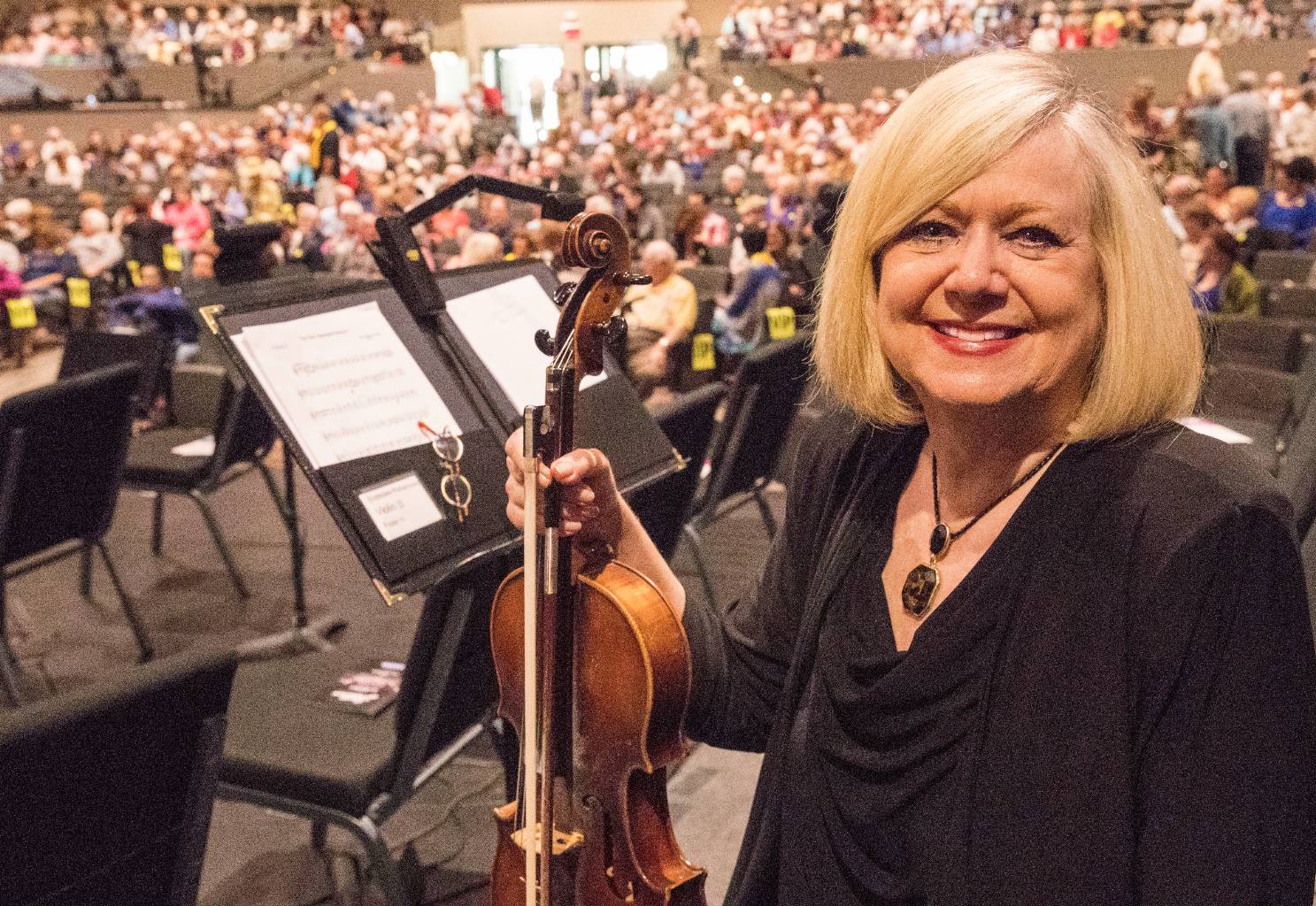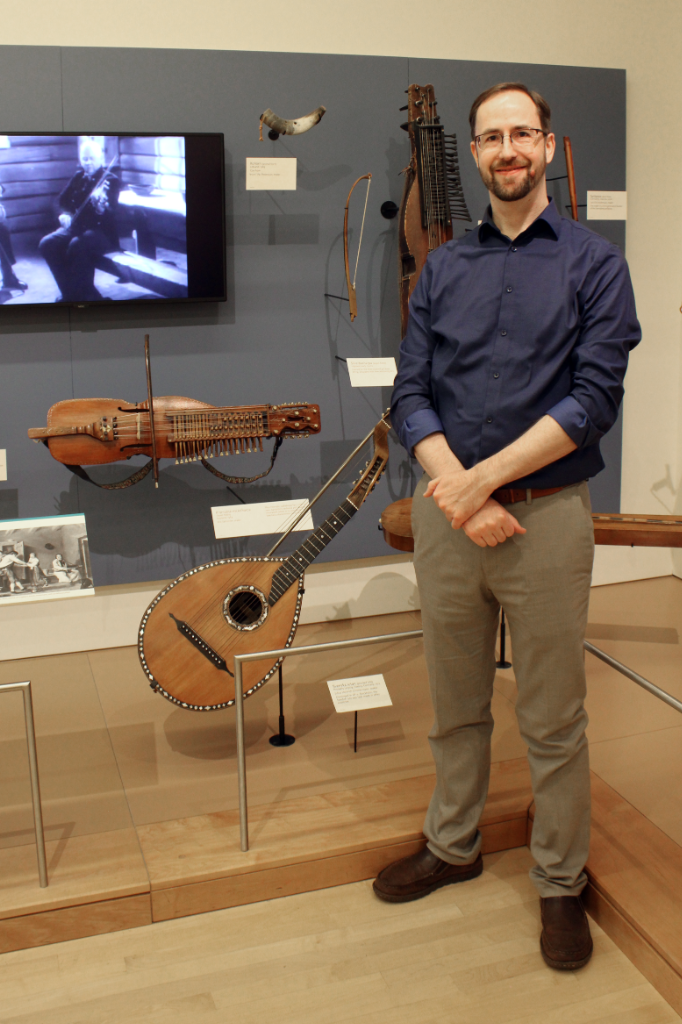Changing the Tune: How Music Shapes the Lives of CPAs
July 01, 2024

by Haley MacDonell
A Musical Origin Story
According to the National Center for Education Statistics, 80% of college students end up changing their major at least once. Jakob I. Klein, CPA, now a tax manager at Wallace Plese + Dreher, started his education as a music major.

“Playing music was the biggest part of my identity growing up,” Klein remembers. In fifth grade, he picked up a trumpet for the first time and quickly joined in on music classes at school. As he grew up, he discovered a love for jazz music and learned how to play other instruments like the guitar and French horn. “I was practicing every day for at least an hour, and I had a great time doing it.”
His love for music led him to pursue a music scholarship and a major in music performance in college. However, as he approached his senior year, the realities of a career in jazz caused him to reconsider.
“I talked through the situation with a friend of mine, who had a very similar path,” Klein says. His friend was a former music major turned accountant. “I took his advice and started taking business classes. Accounting just made sense to me, and I was good at it.”
Switching majors added an additional three years to his education, but in the end, Klein says it was worth it. On the bright side, he had no problem hitting the 150-hour requirement when the time came for him to sit for the CPA exam.
“I already had so many credits adding up from music classes that I graduated with almost 200 credit hours,” he says.
The skills he honed as a musician have influenced his approach to his current career. Playing in ensembles, and his experience as a section leader, taught him the importance of teamwork and communication, skills he now leverages in teams and with clients. Klein has said goodbye to his brass instruments, but he still picks up a guitar from time to time.
When we asked the ASCPA membership on Connect if they were passionate about music, the response was overwhelming. CPAs from all over the state chimed in on how they had studied music, toured with orchestras and continue to share their passion through local nonprofits and music communities. See how music has shaped the lives of these Arizona CPAs.
Shaping A Community
At the age of 12, Joy Partridge’s fascination with music was sparked by a chance encounter with a girl carrying a violin case into her elementary school cafeteria, where the school orchestra was practicing for a music program.
Music. Community spirit. Artistic collaboration. She wanted to be a part of it all. When the orchestra director mentioned a need for viola players, Partridge eagerly took up the challenge, beginning her journey into the world of music. Since elementary school, music has been an unwavering passion for Partridge. Throughout her schooling she dedicated herself to mastering the viola, participating in orchestras at every opportunity. She also continues to share her passion for music through her work as a co-founder and Executive Director of the Scottsdale Philharmonic, a non-profit that was formed in 2012.

"The viola is the third voice of a symphony, slightly bigger than a violin but still played under the chin,” Partridge explains. Her passion for music did not wane, even while pursuing a degree in history and liberal arts, and later, a degree in business & accounting to become a CPA.
“In 2012, after being on the board and performing in many orchestras, I decided that with my business skills, I would be able to help build a symphony that was very much needed in Scottsdale at the time,” Partridge recalls of her pivotal decision to co-found the Scottsdale Philharmonic alongside Carl Reiter, a professional musician and friend. Their mission was ambitious yet clear: to deliver outstanding performances of classical music to the community, free of charge.
For the first 10 years, the Scottsdale Philharmonic offered all concerts free of charge, garnering an overwhelming response from the community. A notable highlight was their 2018 performance of Beethoven's Ninth Symphony, which was played to a packed house of more than 2,000 people.
Today, the Philharmonic boasts approximately 75 musicians, many of whom volunteer their talents, supported by a dedicated board and volunteer group, despite the challenges posed by the COVID-19 pandemic.
Partridge attributes part of the Philharmonic’s success to her blend of musical expertise and business acumen. "When I was in college at Arizona State University, people in the music department didn't understand why someone like me was also getting a degree in business," she notes. With her business degree in accounting, she built her own practice from the ground up while continuing to be an active member of the musical community. "I knew we needed an audience first, so we made concerts free. Once we built our audience, we introduced a small ticket fee to cover costs. It's all about applying business skills to build and sustain the orchestra."
With a steadfast commitment to fostering cultural development in the valley, Partridge continues to lead the Scottsdale Philharmonic, ensuring that classical music remains accessible and cherished within the community. “There’s something spiritually beautiful about classical music,” she says, “especially as you sit in the middle of an orchestra with 70 other people. It’s magical to be a part of that.”
A Place of Inspiration
The Musical Instrument Museum in Phoenix should be on the list of every music lover. Known as the world’s only global instrument museum, MIM is home to over 12,000 instruments and music related objects.
A current special exhibit “Acoustic America” features iconic guitars, mandolins and banjos from well-known folk, blues and bluegrass musicians, including the guitar of Mississippi John Hurt, a critical figure in the revival of American Folk music.

“Mississippi John Hurt recorded a dozen songs with a record label in 1928, but they didn't sell well, so he returned home to Avalon, Mississippi to continue working as a sharecropper,” explains Phil Rumble, controller at MIM. “In the 1960s, folklorists were inspired by a lyric in his song ‘Avalon Blues’ to search for him in his hometown, where they rediscovered him. When I listen to his music, it feels like discovering a hidden treasure that was almost lost.”
Today, Rumble still plays an acoustic Taylor guitar when he can find the free time, and he enjoys exploring the museum, where the music of over 200 countries is represented. Upstairs in the Geographic Galleries, he especially likes the section dedicated to Sweden, where his family originally came from. There, you’ll find unique instruments like the nyckelharpa, a fiddle with keys along its neck – and a träskofiol, or a clog fiddle.
For several years, Rumble has supported the many areas of the MIM’s financial success, including the museum’s music theater, kid classes, memberships, field trips and more. As a CPA, he helps to ensure the long-term fulfillment of MIM’s mission to preserve, share and celebrate musical heritage from around the world.
“I think music is fundamentally a human experience,” Rumble explains. In a way, numbers are too. He remembers collecting baseball cards as a kid, each number on the back of the card telling a different story of the player and their career. “Music reaches out to everyone. As I mentioned before, accounting is a way to tell stories, and I think music is as well.”
How has music shaped your life? Chime in on Connect, the ASCPA’s exclusive member forum and read other stories from musical CPAs: ascpa.com/talkaboutmusic. Please note that Connect is only available to ASCPA members.
